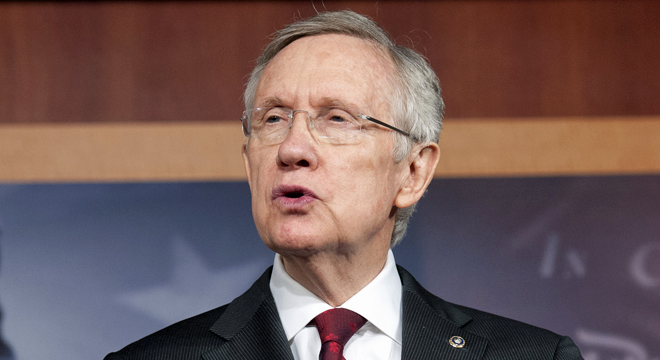The sadness, frustration and anger among gun control advocates over the failure of a Senate bill Wednesday to expand background checks in the Senate has resurfaced speculation about filibuster reform.
It makes for a compelling argument for filibuster reform, at least on its face: 45 senators successfully blocked the will of 55 senators and, according to various polls, 90 percent of the American public.
“Unfortunately, the overwhelming majority of Senate Republicans ignored the voices of an overwhelming majority of Americans,” Senate Majority Leader Harry Reid (D-NV) said Thursday morning. “Republicans defeated a common-sense proposal to expand background checks that has the support of 90 percent of Americans.”
But look a little closer and it’s apparent that Democratic leaders have no desire — or much of an incentive — to reignite the push for filibuster reform over the failed gun vote.
Firstly, the threats by Reid and Senate Majority Whip Dick Durbin (D-IL) to revisit the cause haven’t been about Republican filibusters of legislation. Instead their multiple warnings over the last six weeks about revisiting reforms have been focused on GOP filibusters used to extract concessions or to block presidential nominees. Those include cabinet-level picks like Chuck Hagel, top judicial nominee Caitlin Halligan, and anyone to run the Consumer Financial Protection Bureau.
The issue of guns is also dangerous grounds for Democrats to fight for weakening the filibuster. As Wednesday’s votes revealed, there’s more Senate support for dramatically loosening than modestly tightening gun laws. A GOP amendment that would have made state-issued concealed carry permits valid in every other state received 57 votes, even though Sen. Chuck Schumer (D-NY) warned that it would “wreak havoc” on urban and suburban areas. Requiring a talking filibuster for all blockades would put the burden on Democratic leaders and their allies to thwart legislation like that.
Similarly, it remains unclear that Democrats have 51 votes to weaken the filibuster via the nuclear option, which they have the ability to invoke in the middle of the congressional session. The fragile emotions surrounding the issue for liberals make Democratic senators wary of sticking their necks out against it. But behind the scenes some fear that raising the cost of filibustering could come back to haunt them when Republicans retake the majority and seek to, say, gut abortion rights with 51 votes.










